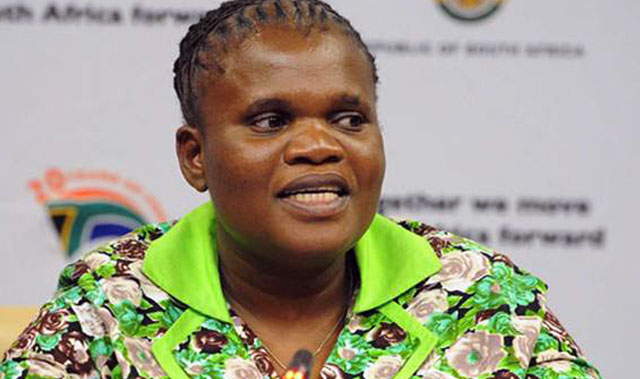
Government is set to back encryption in digital terrestrial television, a sharp reversal of its position on the contentious subject, following the appointment of a new communications minister last month.
Communications minister Ayanda Dlodlo confirmed in parliament on Tuesday that her department’s policy on the issue will shift to one that favours encryption.
Last week, political journalist Stephen Grootes reported from the World Economic Forum on Africa event in Durban that the Dlodlo had said that government would implement encryption in digital set-top boxes, in line with ANC policy.
This is a reversal from the position held by her predecessor, Faith Muthambi, who was moved to the public service & administration portfolio last month when President Jacob Zuma reshuffled his cabinet.
The change in direction comes ahead of a constitutional court judgment, expected to be handed down soon, that will deal with the issue. Muthambi — supported in her application by MultiChoice — challenged a supreme court of appeal judgment that found in favour of free-to-air broadcaster e.tv on the issue.
In May 2016, e.tv won a significant battle in the long-running war over encryption when the supreme court found that an amendment to the broadcasting digital migration policy by Muthambi, made in 2015, did not follow a process of consultation and was irrational and in breach of the principle of legality.
The court found, too, that the amendment did not achieve its purpose and was thus irrational and invalid. Muthambi purported to bind regulatory authorities and broadcasters and thus acted ultra vires (beyond her authority), the court said.
MultiChoice, which owns M-Net and DStv, and e.tv have been at each other’s throats for years over encryption of the signals. The pay-TV broadcaster has argued, among things, that putting encryption in government-provided free set-top boxes would amount to unfair competition. E.tv, on the other hand, argued that if this didn’t happen, the free-to-air broadcasting sector in South Africa risked being “ghettoised”.
MultiChoice said on Tuesday that it is not aware of any official position from government on the subject, and declined to comment further.
Democratic Alliance MP Marian Shinn described Dlodlo’s reversal of the policy “a great step forward”. (Also see the opinion piece, written by Shinn, Set-top box move is ‘good news’.)
The South African Communist Party welcomed the news of government’s policy reversal, saying Muthambi’s 2015 amendment was done “simply to benefit parasites and Naspers”, which owns MultiChoice.
“The SACP agrees with the basic principles underlying the policy, specifically the strategic aim to strengthen free-to-air, public and community television broadcasting,” the party, which is an ANC alliance partner, said in a statement.

“Naspers was established during colonial rule in South Africa and served as the mouthpiece of the Broederbond, the ideological vanguard of apartheid. The action to strengthen its monopoly and parasites could only be the function of false radical economic transformation at the expense of true radical economic transformation,” the SACP added.
“In sharp contrast, true radical economic transformation must de-monopolise our economy. It must decisively elbow the stranglehold of private monopoly capital, concentration, oligopolies, oligarchs and parasites from the neck of our economy, including in the media and communications sector.
“The digital terrestrial television broadcasting space must therefore be democratised by means of bringing an end to the monopoly of Naspers’s MultiChoice.
“The government must use the [broadcasting digital migration] process to expand access to new entrants. Encryption significantly lowers the financial barriers to entry for new entrants in the pay television sector, while allowing for state revenue generation to recover, over a few years, the cost of the initial … subsidisation of [set-top boxes].”
The SACP said, too, that the inclusion of encryption would give South Africans, including the poor, access to a variety of digital platforms including e-government services. “E-government services can only be delivered in home language and geographically specific form, with [set-top boxes] that have functional conditional access/encryption chips.”
The party called on Dlodlo to withdraw the appeal application before the constitutional court. — © 2017 NewsCentral Media

